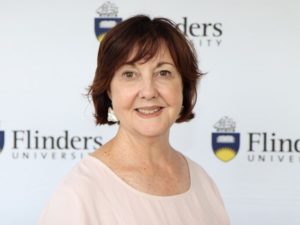
With aged care placed squarely in the national spotlight since the Royal Commission into Aged Care Quality and Safety, the need for swift and effective translation of new research into aged care improvements has never been more critical – and strong partnerships between Flinders University and aged care service providers is providing the best outcomes.
South Australian-based aged care provider ACH Group has co-sponsored the Chair of Health Ageing with Flinders University for six years, and is thankful for the advances that data and evidence-based research is providing for informed decision making. ACH Group is therefore keen to implement even more swiftly translational research.
ACH Group points to work performed by Flinders University’s Professor Sue Gordon, who was embedded in the organisation for one day a week as the result of a co-funded partnering relationship. It was a highly beneficial venture that saw Professor Gordon help define a relevant research framework, contribute to clinical capacity and facilitate translation of research into practice that swiftly improved outcomes for residents and customers.
ACH Group has a research portfolio that spans 22 research projects. ACH Group GM Service Design Ivy Diegmann says her organisation sees great benefits from partnering with a university to introduce innovative projects. “Having Professor Gordon in our team helped us to frame evaluations that didn’t just sit on the shelf,” says Ms Diegmann. “These evaluations had the rigor that led to publishable materials – and that means results which translate quickly into aged care practice.
“Productive relationships must be two-way exchanges, where both parties truly commit to understand all of each other’s strengths, challenges and operating environment – and this is where our work with Professor Gordon was so productive.”

Ms Diegmann says the key benefit was having Professor Gordon embedded into the organisation for a specific time each week. “This resulted in her learning a lot about the operating environment, and it helped underline the real challenges facing aged care. She was also able to connect and make strong personal relationships with people in our program, and that built greater confidence among everyone to implement the research.
“Embedding the researcher into our organisation helped mitigate some of the problems we may have in translating research into practice.”
Ms Diegmann says it wasn’t difficult to embed a researcher into the organisation. “A lot of that is a credit to Professor Gordon, because she made a real commitment to understand our operating environment,” she says. “Through working together in this way, we can add value to ageing and aged care, and we need to be more agile in real time to achieve this.
“One of the great challenges facing researchers is that their projects often take two or more years to complete and have published outcomes, and unfortunately the practices of care providers have often moved on by then and the research can become redundant very quickly.
“Therefore, the efficiencies of having a researcher embedded with a care provider means that the translation of research to practice happens with much more speed.”
This partnership between Flinders and ACH Group now stands as a valuable model that can be repeated. Ms Diegmann identified that difficulties in securing future funding may make a co-funding model for embedding researchers more difficult, but she points to significant benefits and efficiencies through cooperative partnerships that cannot be ignored.
“I can point to three key messages on the prospect of continued fruitful future partnerships,” says Ms Diegmann. “We need to continue working together on translational research and building the data-driven, evidenced-based capability of providers. We need to be more outcome-focused and to do more impact evaluations. And we need to be more agile in real time – and do more research projects together.
“It’s all about building a research capability, so that when we do new work, we actually have rigour around the evaluation and can therefore be much more influential in the way we share our learnings.”

